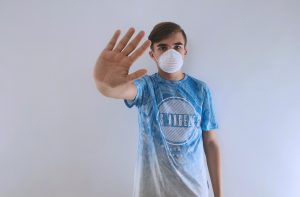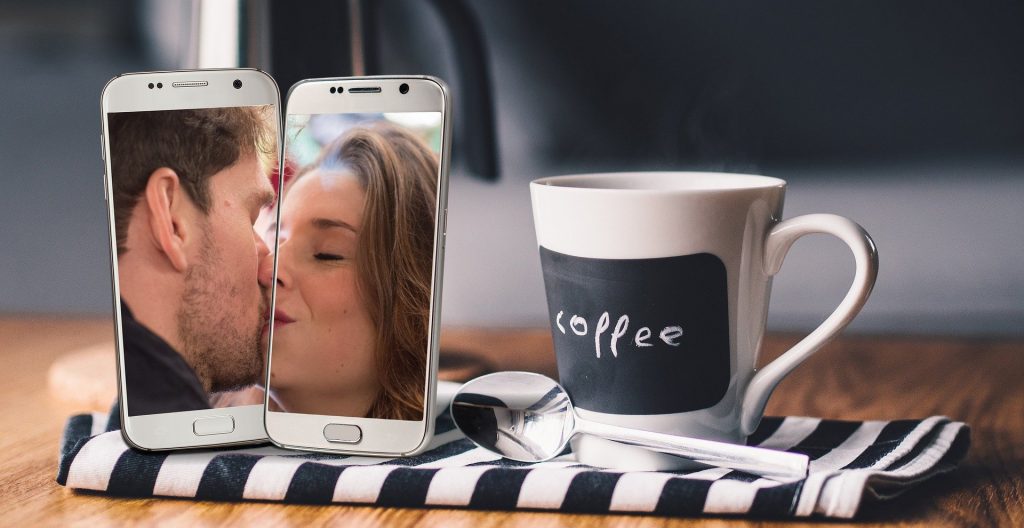 I’ve been quietly watching things play out with the coronavirus in my community, giving governments the courtesy of time to do their job. However, things have had time to play out and many esteemed scientists are coming forward to call for an end to this. Having spent my life as a healer, it is time to add my voice in the hopes of expediting the course we must take to save our communities.
I’ve been quietly watching things play out with the coronavirus in my community, giving governments the courtesy of time to do their job. However, things have had time to play out and many esteemed scientists are coming forward to call for an end to this. Having spent my life as a healer, it is time to add my voice in the hopes of expediting the course we must take to save our communities.
My Perspective Isn’t Forged In a Vacuum
I sat in the ICU for 6 to 8 hours a day at Legacy Meridian Park Medical Center in Tualatin, Oregon from January 21 until February 9, when my brother finally died. During those two and a half weeks there were people all around me with respiratory illness, and I was most certainly exposed to Covid-19. I never showed any symptoms but then why should I? I can’t remember when I’ve ever had the flu and my colds are so light I hardly know I have them.
Sitting in ICU for that long really opened my eyes to how wonderful the nurses are in our hospitals and how sad disease and death are. I didn’t just experience the loss of my brother but also witnessed the grief of other families gathered around their dead loved ones. I listened to people gasping for breath. I heard people begging—no screaming—for pain meds. I watched young people hyperventilating as they attempted to deal with their loss.
All of this gelled even more compassion into my healer’s heart. I know how awful is disease and the loss of life. Since then, ICUs have become scarier, sadder places, but I bring all of this up to emphasize that what I have to say about community is not spoken out of ignorance or apathy.
The Dangers of Quarantining the Healthy
Sickness and death have plagued us ever since the Adam and Eve opened the floodgates of misery on the world. I would not be a healer if I had no compassion for the sick and dying. Neither would I be a healer if I had no concept of the foundations of health.
A healthy community—both within us and without—depends on foundational health, and a critical part of foundational health is interaction within the community. This is as important in our external community as it is in the community within our body. Disease and death result when a community’s connectedness breaks down.
This is why from antiquity societies have rarely, if ever, quarantined the healthy. We quarantine the weak and the sick. This is because, on some level, we all know what happens when community is compromised.
We Are Made For Community Despite Life’s Peril
We were made for community, from the microbes and cells of our deepest selves to the laughter at the pub or the church potluck. We were made for hugging, for theater, for ball games, and for eating shoulder to shoulder in restaurants. We were not made for distancing or huddling alone at home. In a little book called Present Concerns, C. S. Lewis warned against the dangers that come to a community from fear and isolation, whether the threat comes from an atomic bomb or a novel coronavirus:
Do not let us begin by exaggerating the novelty of our situation. Believe me, dear sir or madam, you and all whom you love were already sentenced to death before the atomic bomb was invented: and quite a high percentage of us were going to die in unpleasant ways…the first action, then, is to pull ourselves together. If we are all going to be destroyed by an atomic bomb [or a coronavirus], let that bomb when it comes find us doing sensible and human things–praying, working, teaching, reading, listening to music, bathing the children, playing tennis, chatting to our friends over a pint and a game of darts–not huddled together like frightened sheep and thinking about bombs [or this coronavirus]. They may break our bodies (a microbe can do that) but they need not dominate our minds.
Whether prompted by ignorance, manipulation, or a fear of death, words like “Stay Safe,” “Stay Home–Stay Safe,” “Stay Home–Save Lives,” “Social Distancing,” and “Shelter in Place” invite the death of civilization and do not belong in community dialogue unless we have a death wish. Like C. S. Lewis says, life is not safe.
Disease Experts and Doctors Speak Out
Many infectious disease experts and doctors all over the world are speaking out and telling a different story about Covid-19 than our governments and media, a story that resonates with the truth of natural immunity, organic health, and our need for community:
- Dolores Cahill is a world leading scientist and academic, renowned for her work in Bio-Medicine. Dolores has been a member of the Advisory Science Council to the Irish government and a member of the International Science Advisory Board. Her research shows that vitamins, such as D and C, take the teeth out of the coronavirus. She is deeply concerned about draconian measures foisted on the Irish people.
- Dr. Scott Atlas, former chief of neuroradiology at Stanford University, says to end the panic, the widespread lockdowns, and to let the population generate immunity like communities naturally do.
- A Dallas, Texas doctor, Dr. Ivette C. Lozano, has been using hydroxychloroquine with a 100% recovery rate since the outbreak, and has been bullied and harassed by pharmacists and officials.
- Prominent German forensic medicine professor, Klaus Püschel, says there is no killer virus. The hysteria is exaggerated, as all fatalities he examined had serious previous illnesses which would have soon resulted in death with or without the virus.
- Professor Michael Levitt, who won the 2013 Nobel Prize in Chemistry, says the lockdowns ordered by state governors are a complete overreaction. He has been studying it statistically since January and agrees with mathematician, Andrew Mather, that the virus never grew exponentially like officials and media scared us into thinking.
“The coronavirus panic is just that, an irrational panic, based on an unproven RNA test, that has never been connected to a virus.”
– Sayer Ji, founder of GreenMedInfo, the world’s most widely referenced evidence-based natural health resource.
- Two professors of medicine at Stanford University, Dr. Jay Bhattacharya and Dr. Eran Bendavid, believe that there is little evidence that the coronavirus would kill millions of people without shelter-in-place orders and quarantines. Dr. Bhattacharya discusses their conclusion here and here.
- Dr. Dan Erickson & Dr. Artin Massihi, both medical doctors & virologists, say that quarantining healthy people, closing down business, and social distancing have far-reaching negative epidemiological, social, and economic effects.
- Dr. Daniel Murphy, chairman of the Department of Emergency Medicine at St. Barnabas Hospital in the Bronx, says we need to soothe public fear and reopen immediately. The good news, he believes, is that the virus is more widespread than we think.
- Dr Judy Mikovits has a PhD in Biochemistry and Molecular Biology and worked for year with HIV. She worked at the National Cancer Institute became research director of the Whittemore Peterson Institute (WPI). She talks about her experience with corruption and conflicts of interest in the political world of disease.
- Dr. Daniel Pompa is a Utah chiropractor who understands natural immunity. He talks about the health dangers of what could become the “new normal” of masking, sanitizing, and distancing.
- David Crowe, a Canadian environmentalist, writer, and science and medicine critic, notes flaws in the coronavirus pandemic theory. He talks about problems with the coronavirus PCR test, the curious cases of those who were exposed but didn’t get it, and the rising cases of those who contract it but could not have been exposed.
The list of competent dissenters goes on. However, these represent a good cross section of the qualified and reasonable people that are speaking out for community, freedom, and health regardless of the constant attacks of media and law enforcement.
We Know How To Live In Community
We already know how to live in community. Thus radical measures that cost us our freedom, health, commerce, savings, and opportunity are not something we need to do. A society cannot afford to court such things. Like Steve Hallstrom says, “In a societal context, we understand we are part of a system. If I’m susceptible to something, I have the freedom to say don’t come to visit me I might catch something or I might give it to you. In a free society we let the people make these decisions, not the government.”
We are more resilient in community than we think. We need to stand with Saint Paul and insist that we will not forsake the assembling of ourselves together.
“Till It’s Safe” Means Never
Like both C. S. Lewis and Dennis Prager say, it is impossible for society to operate without risk. Bilbo concurs:
“It’s a dangerous business, Frodo, going out your door.”
Dangerous, yes. And wonderful, I would add, because living is a glorious thing–despite the risk we all face.
My brother, Kent, would agree if he had not already succumbed to the dangers and risks of the world. We cannot truly live without risk. Our communities cannot thrive without risk. This governmental and media brouhaha must end soon or we will reap an epidemiological, societal, and economic whirlwind from which we may never recover.
Dennis Prager, indeed, said it most succinctly:
“‘Till it’s safe’ means never.”

